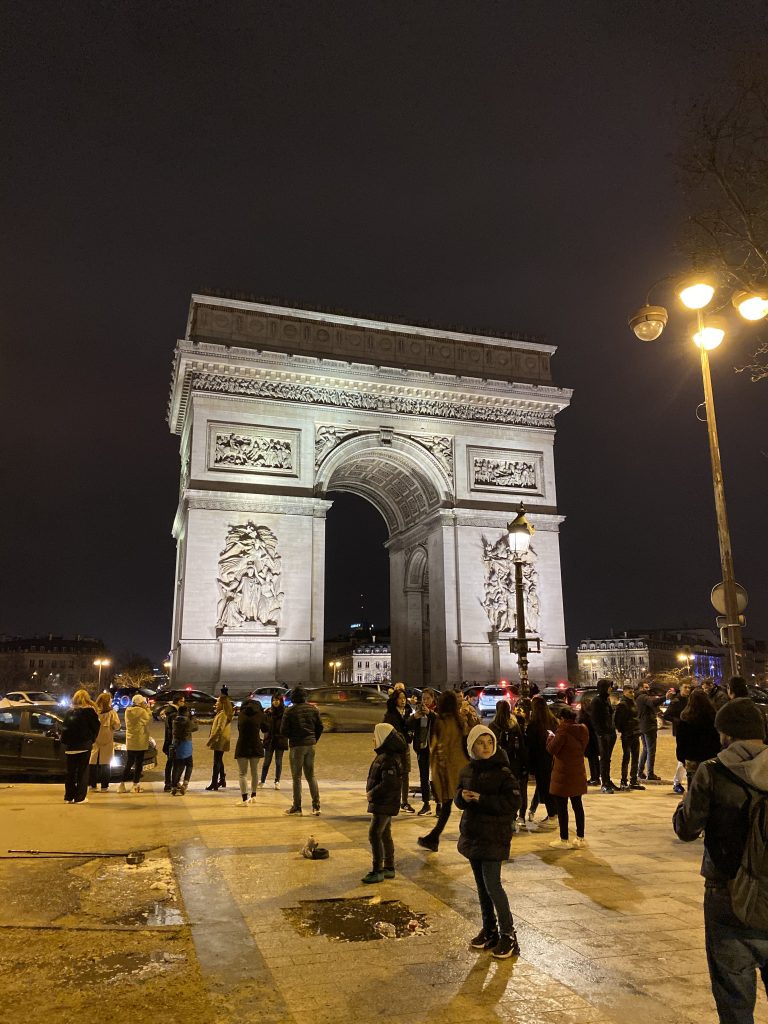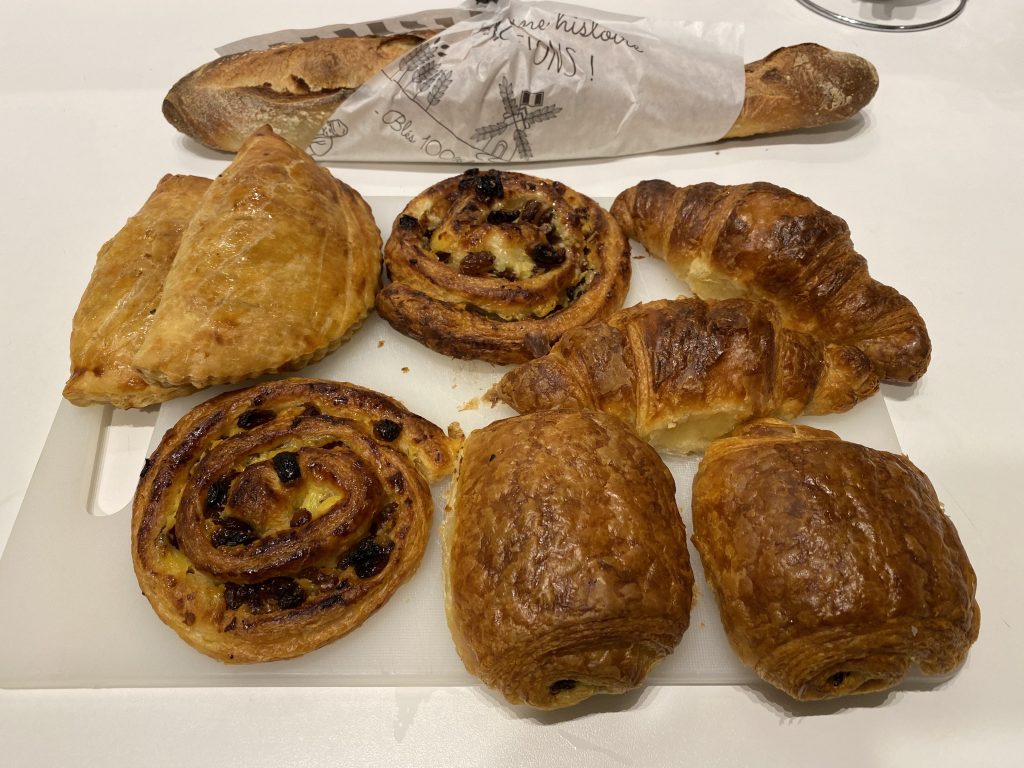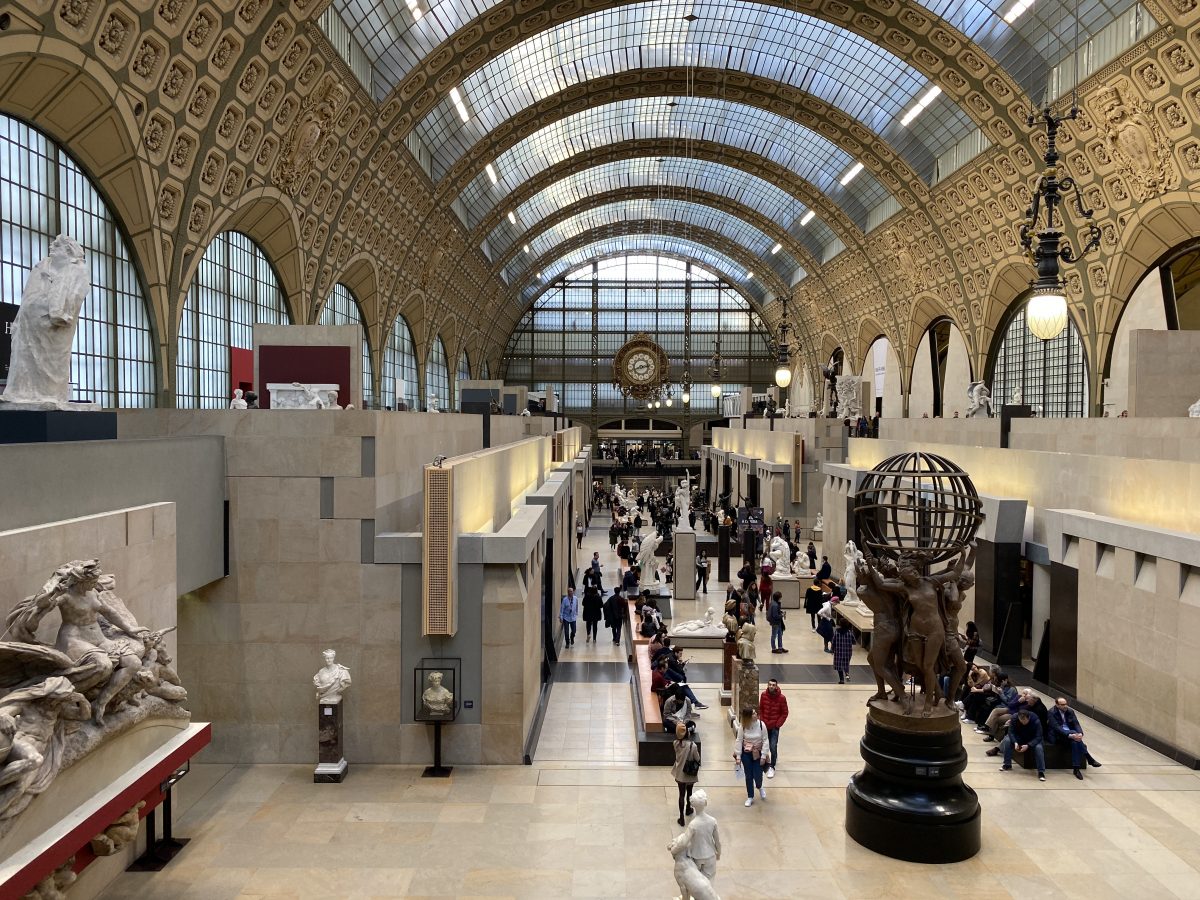Over three years of high school French class, I spent a lot of time learning conjugations and tenses. I memorized how to combine aller (to go) with I, you (informal), and so forth. I memorized the same for the past tense and so forth. And I forgot a lot of it, and by the time I got to Paris, it didn’t matter very much.

A friend taking ASL in college once said that much of the class was just about learning to express yourself and making yourself understood. Reflecting on my experience speaking French in Paris, I think that might generally be true of all languages.
In conversation, I made up a lot of conjugations and didn’t bother using the right tense. And it was pretty okay: the locals usually got what I was trying to say and then replied with something that I couldn’t understand. Good enough.
I realized how bad my French was when everyone told me how good my French was. I have a theory.
If my French was actually good, they wouldn’t say anything about it: they would just continue the conversation. So on the scale of how bad, I wasn’t the worst: if my French was truly atrocious, they would just switch back to English. That was my experience saying “hello” and “thank you” in other countries.
Just beyond truly atrocious, however, I got a lot of praise from native speakers who realized how much I was struggling. It was just enough that they felt bad and wanted to reassure me.
However, if I was much past that level of speaking, they probably would have expressed more frustration. And maybe past that, then the praise starts to linearly grow with true ability until appearing fluent again.
About a month before arriving in Paris, I began to furiously work my way through the French Duolingo course. I never fooled myself into thinking that I could become fluent in that time, but I felt like I could give myself a huge boost with a refresher. It worked, and by filling in basic grammar and a lot of cognates, I got through roughly half the course. I supplemented that with vocabulary flash cards. Vocabulary is always hard, so I focused my study on the important things by going over French pastries and food.

I last went to Paris with my family in 2013, and although I had a great time, I neither practiced nor used very much French. Again, I knew I would have too many gaps in my vocabulary. This time, I was armed with Google Translate, which can fill in that vocabulary as needed.
Like la grève (the strike). I definitely didn’t learn that word, but it was very relevant when public transit protested retirement changes. In 2013, we stayed 7 miles out of town, and we could get in faster than we did this time staying 2 miles from town in the Latin Quarter. The good news is that while on strike, the few running Metro lines have been free. I did miss out on using the excellent input system of rolling pins to pick options on the ticket machines.

Connaître (to know) and Savoir (to know). Sortir (to exit) and Partir (to leave). Like conjugation, I had a lot of difficult with word choice. Again, like conjugations, it didn’t matter. In the metro station, I had to ask a man in a booth if I needed a ticket. I used “need” as in “I need to do something” instead of “I need a thing”, so I basically asked him, “Do I need to ticket?” He pegged me as an ignorant American, rolled his eyes (maybe I imagined that part), and gave me a firm, “no, just go” with emphatic pointing.
If I had ten more seconds, I could have done better. Using Google Translate, I prepared for a discussion by mentally translating sentences beforehand, then checking myself on Google Translate. Even more than the vocabulary, it helped me compose more natural sentences than my direct word-by-word translations (e.g. rather than “This dessert is from Paris”, it will translated it to “This dessert comes from Paris”).
And there were plenty of little corrections in there as well. De, à, en, dans. In the past, I noticed that non-native English speakers sometimes use the wrong preposition. As a native (though sometimes clumsy) speaker myself, it’s very obvious even if I can’t explain why the right one is different. In Paris, I got the other side of it. As a non-native French speaker, I had no idea which prepositions to use. Thankfully, it again didn’t matter in getting my point across.
And that’s the confidence that got me extra practice. My Dad taught us that the best way to learn a language is to talk to everyone. It’s just practice, so he incessantly talked to taxi drivers and any other captive audience when he was in China. Apparently, sometimes people would laugh at him, but he got better.
So I asked stupid questions. “What time are you open tomorrow?” (with the sign in plain view) “What is that?” (pointing at a pastry I had no intention of buying). And despite the reputation to the contrary, the Parisians were all very nice to me. They never laughed, always responded in kind, and occasionally complimented my French.
Yeah, that’s how bad my French was.

One reply on “Butchering French in Paris”
[…] first good stab happened in Europe in late 2019. Before going to Paris, I began a crash refresher course in French. I picked out specific useful vocabulary, like bakery items, and I memorized survival phrases, like […]